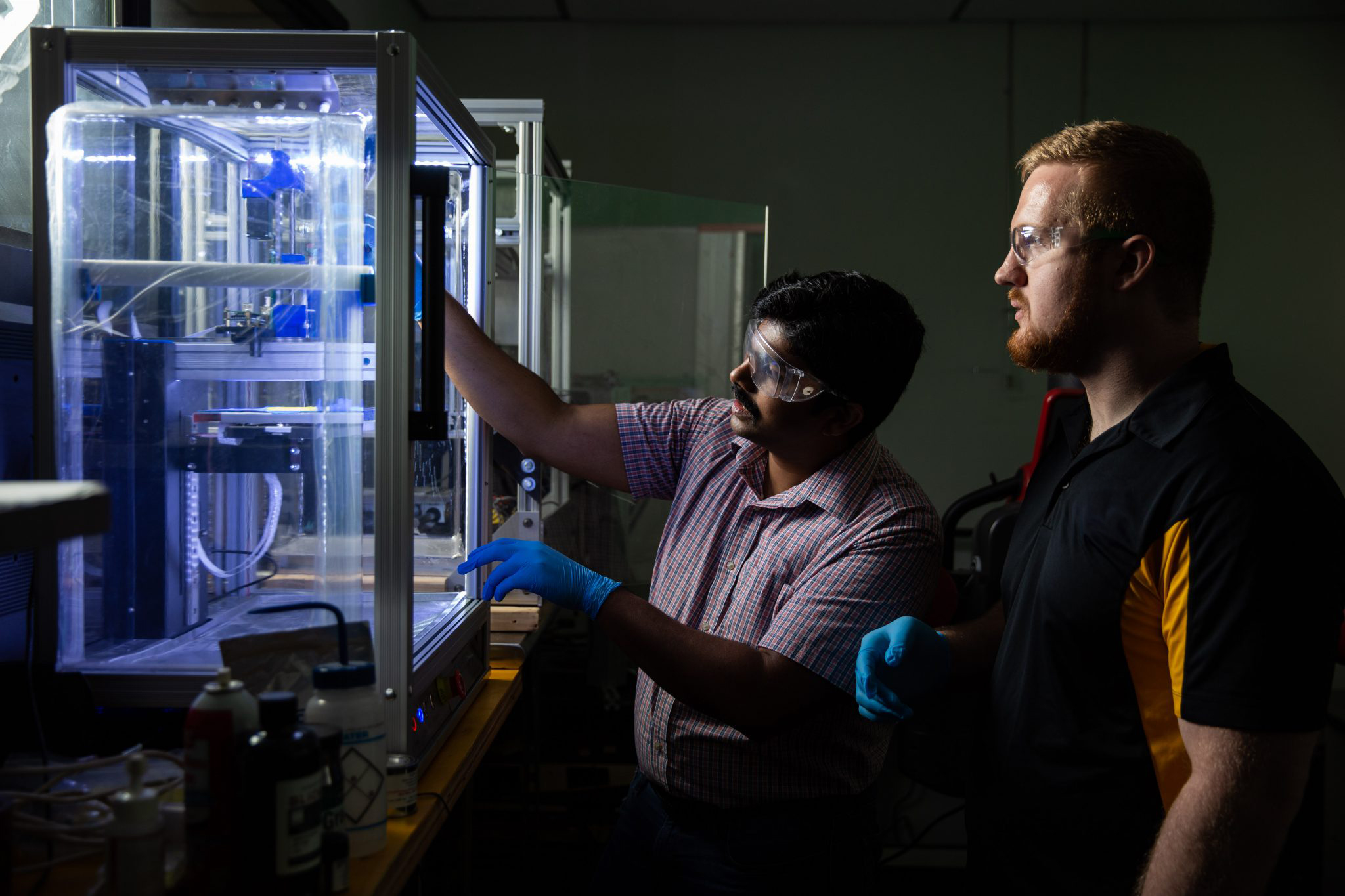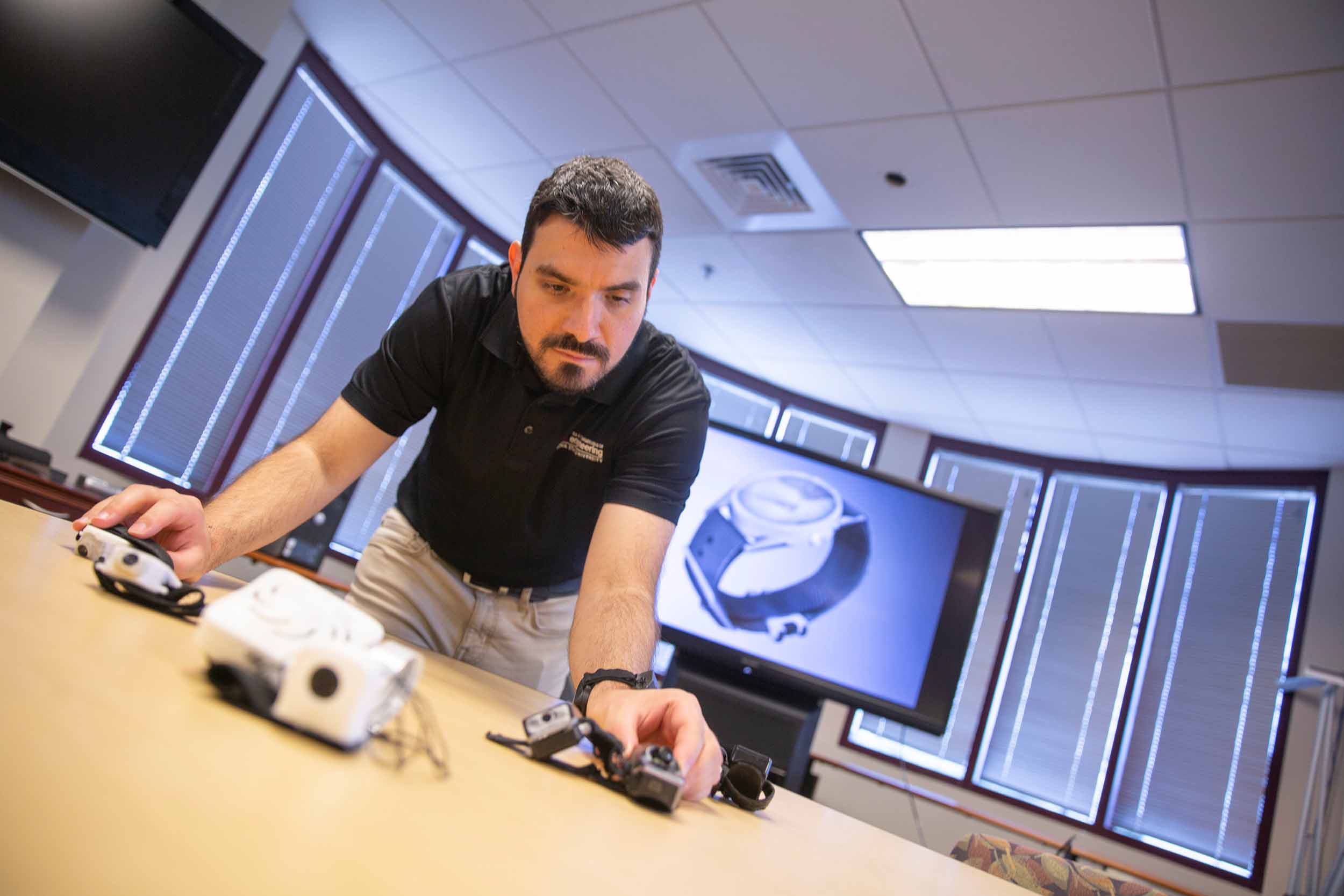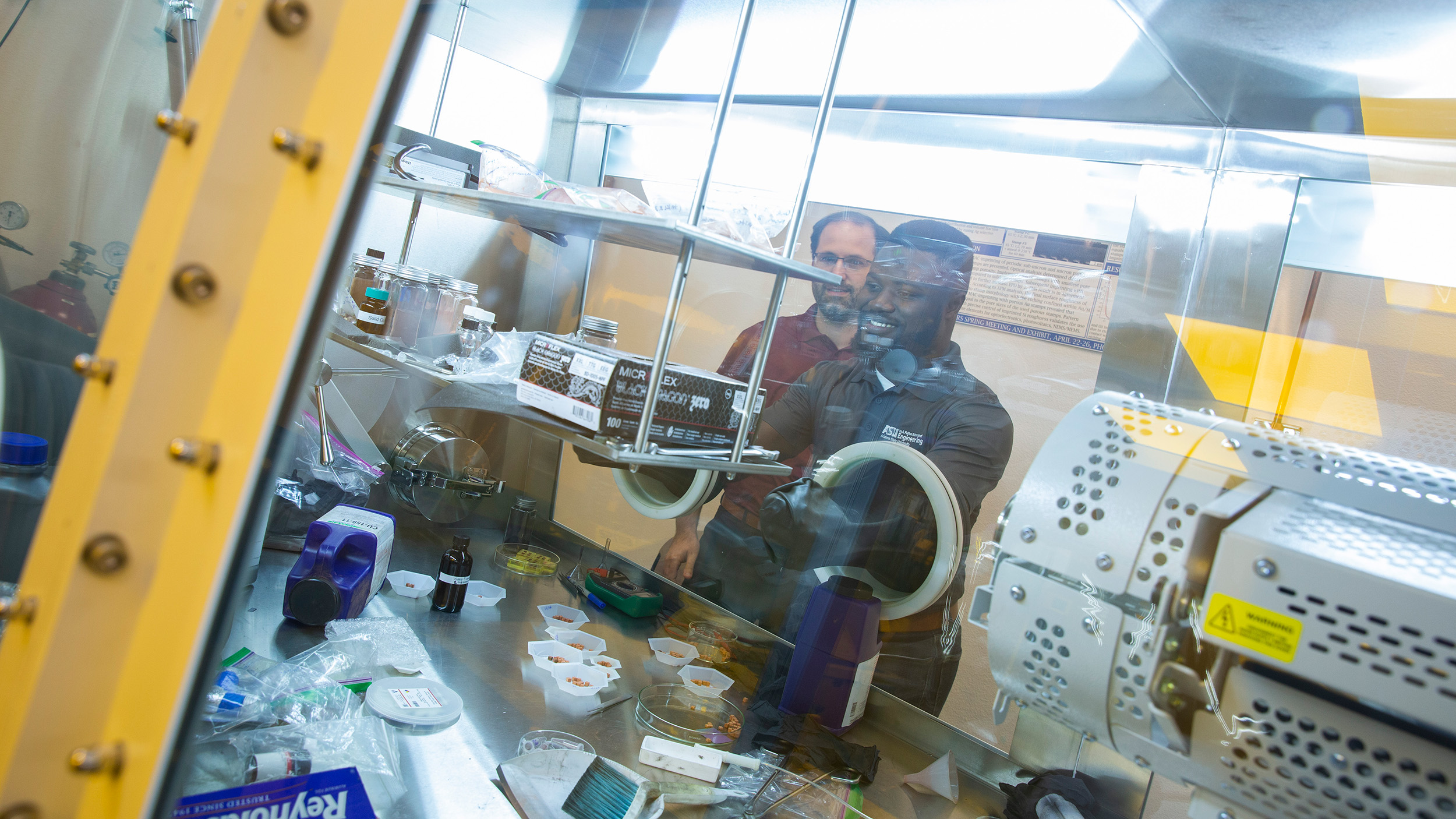
Research

Apply to become a Fulton Fellow
The School of Manufacturing Systems and Networks extends several Fulton Fellowships to new students pursuing a doctoral degree in manufacturing or systems engineering. Be considered for four years of funding through this competitive program. All applicants will be considered for the Fulton Fellows program. No separate application is needed.
Today’s manufacturing systems are not simple input-output machines
They demand genuine innovation in the design and implementation of technologies that not only push the boundaries of what’s possible but also integrate diverse engineering disciplines. This involves developing human-machine teams that seamlessly combine expertise from fields like robotics, artificial intelligence, data science and electrical engineering. The aim is to create systems that leverage advanced sensing technologies, high-performance computation, real-time processing and robust networking capabilities. By aligning these technologies, these systems can adapt dynamically and function with optimal performance, achieving breakthroughs in industries ranging from autonomous systems and smart manufacturing to healthcare and beyond.
Our faculty
The quality and expertise of our faculty directly influence student success, shaping both their academic and professional journeys. Faculty members serve as mentors, educators and guides, providing students with the knowledge, skills and critical thinking abilities they need to excel in their fields. Their support often extends beyond the classroom, guiding students through research projects, internships and career decisions.
Research thrusts
Digital manufacturing
Manufacturing processes that are enhanced by data-driven systems to simulate and optimize processes, accelerate production and reduce operating costs through digital collaboration tools across various high-tech industries.
Additive manufacturing
3D printing processes that enable parts to be produced more efficiently and at much faster rates to advance the entire manufacturing ecosystem across the product lifecycle.
Robotics and automation
To keep up with today’s high-tech demands, advanced factories are using robotic platforms and autonomous systems that are capable of carrying out a set of complex tasks at high speeds and in dangerous environments.
Faculty expertise by category
Binil Starly – digital manufacturing, digital factories, Industry 4.0, digital twins, AI in manufacturing
Shenghan Guo – industrial informatics, statistical quality control, interpretable machine learning, big data analytics
Hyunwoong Ko – AI in manufacturing and design, physics-informed machine learning, digitization of factories, cyber-physical systems
Farhad Ameri – semantic AI, digital supply chains, knowledge graphs, ontology
Zhengtao Gan – computational mechanics, real-time process simulation, physics-based AI/ML
Bruno Azeredo – semiconductor manufacturing, metal additive manufacturing, nanomanufacturing
Dhruv Bhate – bio-inspired design, architected cellular materials, metal additive manufacturing
Xiangfan Chen – 3C printing, metamaterials, composites, wearable electronics, photonics, bioprinting
Xiangyang Dong – structural energy storage, sustainable manufacturing, additive manufacturing, multifunctional composites and ceramics, multiscale and multiphysics-informed machine learning modeling, first-principles calculations, molecular dynamics simulations, and finite element methods, materials genome and materials design, laser-aided material processing, processing-microstructure-property relationship
Keng Hsu – polymer additive manufacturing, metal additive manufacturing, solid-state welding
Chao Ma – additive manufacturing, laser manufacturing, metal matrix nanocomposites, porous materials, carbon capture and utilization
Mostafa Yourdkhani – multi-functional composites, robotic additive manufacturing
Daniel Aukes – robotics, design, dynamics, kinematics, mechanism design, manufacturing planning, laminate fabrication techniques, rapid prototyping design for affordability, design for manufacturability
Sangram Redkar – robotics, dynamics and control
Thomas Sugar – human-robot integration, exoskeletons, robotics
Wenlong Zhang – human-robot collaboration, dynamics systems modeling and control, wearable robotics, soft robots, aerial robots
Jerry Gintz – industrial automation, robotics in manufacturing
Troy McDaniel – haptic interfaces, haptic intelligence, sensory augmentation, smart multimedia
Ehsan Dehghan-Niri – acoustic imaging, non-destructive testing, robotic inspection, in-situ quality control
Kevin Nichols – robotics, dynamics and control
Xi Yu – multi-robot systems, autonomy in extreme environments, autonomous blimps and underwater vehicles

Meet the MSN faculty

Research centers and facilities
Students and faculty in the School of Manufacturing Systems and Networks have access to the latest manufacturing technologies for working on projects and conducting research.
MSN is located on ASU’s Polytechnic campus, which is home to both MSN and The Polytechnic School, and offers $2M in shared equipment and $5M in faculty lab resources.
Learn about our centers and see our specialized facilities and equipment.